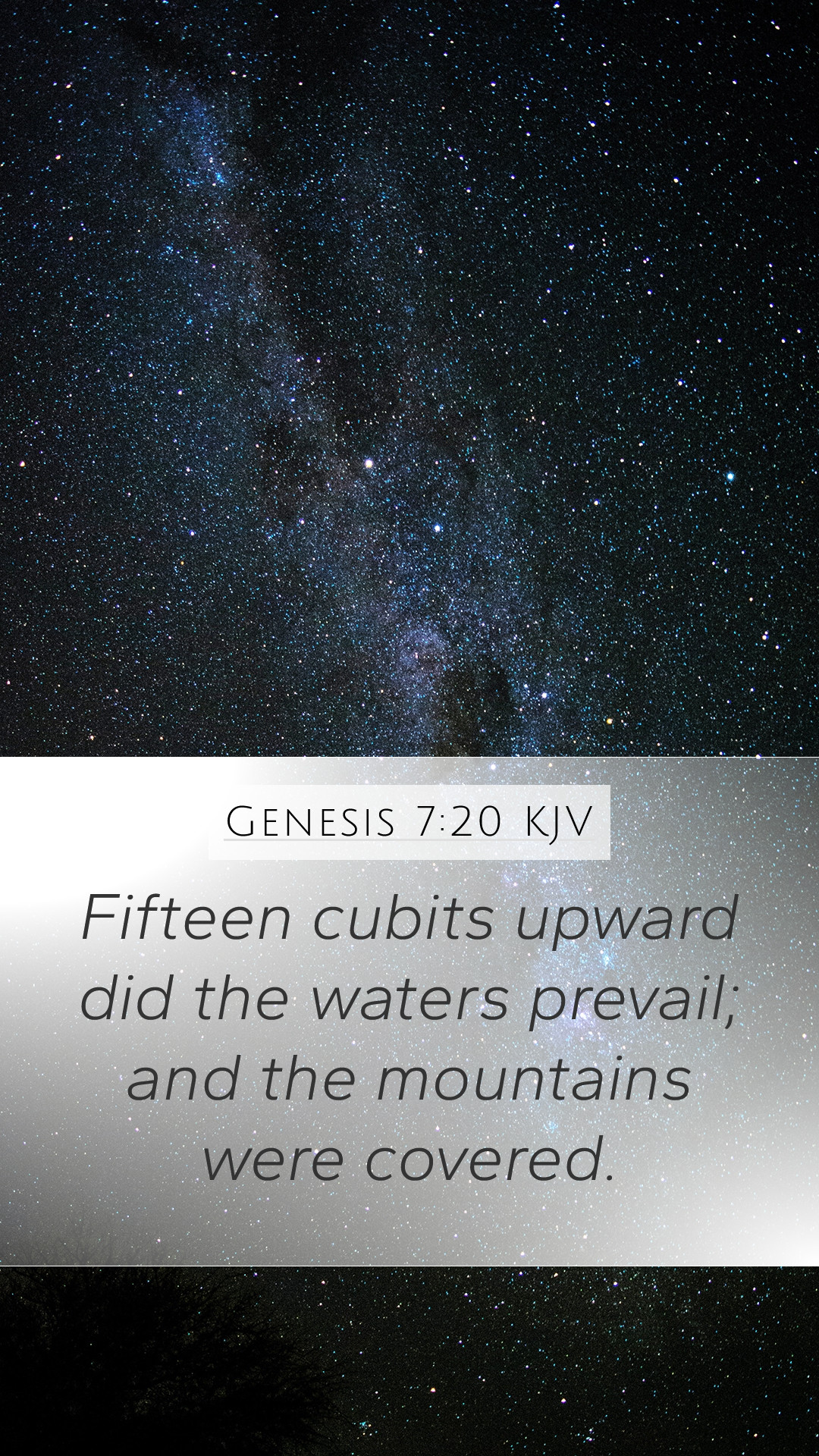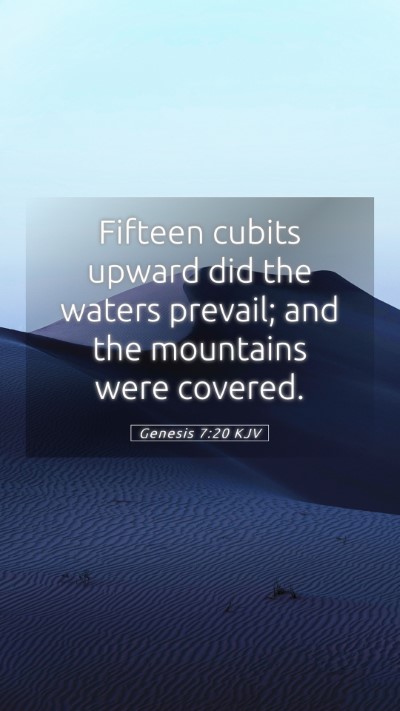Genesis 7:20 - Bible Verse Meaning and Interpretation
Verse Reference: Genesis 7:20 states, "Fifteen cubits upward did the waters prevail; and the mountains were covered."
Overview and Context
In this significant verse from the Book of Genesis, we find a crucial moment during the Great Flood described in Noah's narrative. This passage emphasizes the overwhelming nature of the flood waters, indicating that they rose to a height of fifteen cubits above the highest mountains, demonstrating God's judgment on an unrepentant world.
Combined Insights from Public Domain Commentaries
-
Matthew Henry’s Commentary:
Matthew Henry illustrates the biblical event as a fulfillment of God's warning and judgment against the wickedness of mankind. He points out that the flood was a global event, not merely local, and the measurement of the waters was an indication of the complete destruction that followed sin. The covering of the mountains signifies that even the highest places in the earth could not escape divine judgment.
-
Albert Barnes’ Notes:
Barnes emphasizes the enormity of the flood waters, highlighting how this measure serves to convey the totality of the flood's impact. He explains that the waters not only submerged the earth but did so to a terrifying degree, emphasizing the power and sovereignty of God in enacting His plan for humanity’s renewal. This serves as a warning for future generations about the consequences of rebellion against God.
-
Adam Clarke's Commentary:
Adam Clarke elaborates on the engineering and mathematical implications of the measurement given in the text. He articulates that the mention of fifteen cubits above the mountains substantiates the account's believability. Clarke also contextualizes the flood within God’s covenantal framework, hinting at the ongoing consequences of human sinfulness until divine intervention was necessary.
Theological Implications
This verse serves to underscore several theological themes:
- The Justice of God: The flooding signifies the seriousness of sin and the justice that God upholds. His actions reveal that unrepentant behavior has dire consequences.
- God's Sovereignty: The command over the waters demonstrates God's ultimate authority over creation and serves to remind believers of His omnipotence.
- Hope and Renewal: Even in judgment, there is an element of hope with Noah’s family being saved, marking the beginning of a new covenant between God and humanity.
Application in Daily Life
Understanding this verse can lead to profound personal applications:
- Recognizing the consequences of actions and the importance of repentance.
- Trusting in God's sovereignty during tumultuous times, knowing that He is in control.
- Remembering the covenant promises God extends to humanity, encouraging believers to live faithfully in light of those promises.
Cross References
- Genesis 6:5-7: God’s decision to destroy humanity due to widespread wickedness.
- Matthew 24:37-39: Jesus references Noah and the Flood, warning of the coming judgment.
- 2 Peter 3:5-7: A reminder of the past judgment through the flood and the future promises God has made.
Further Study and Exploration
To delve deeper into the understanding of Genesis 7:20 and its place within Scripture, consider the following:
- Participating in bible study groups focused on Old Testament narratives.
- Utilizing bible study tools and resources that provide historical context and deeper insights.
- Engaging in online bible study platforms that offer discussion and interpretation of difficult Bible passages.
Conclusion
Genesis 7:20 provides a stark reminder of the power of God and the consequences of human behavior. Through various biblical commentaries, this verse is framed within a rich tapestry of divine judgment, grace, and the importance of heeding God's warnings. As we strive to understand this scripture, we can glean valuable lessons applicable to our faith journey today.


